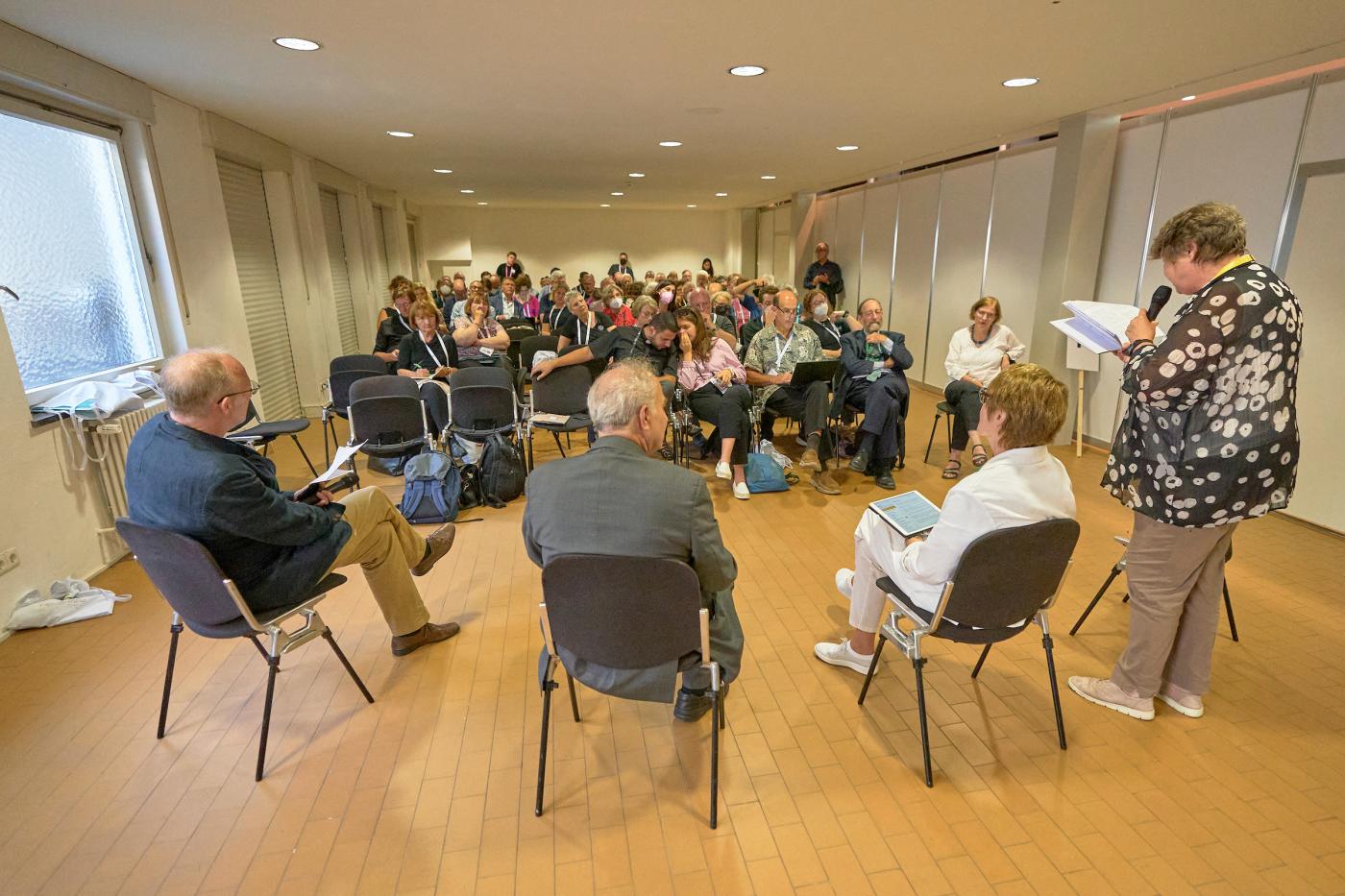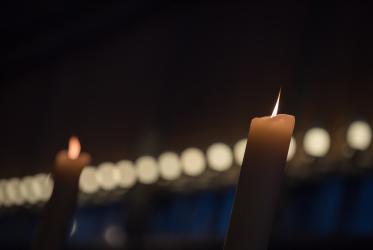This eloquent metaphor helped many workshop participants engage withthe dramatic reality of the Holy Land, where physical and mental barriers prevent Israelis and Palestinians from living together in peace.
Said reflected that in history, walls and barriers have been erected for defensive purposes for entire populations and for family and individual privacy. Yet in other contexts, these barriers are the fruit of hatred, and can imprison us in our own minds. He added that we also erect barriers between us and God, but God destroys those barriers and dialogue eventually prevails over silence.
The workshop, meant for Christians from Palestine, Jews from Israel, and Jews and Christians from European contexts to exchange and reflect together on the perception and experiences of borders, was hosted by the Evangelical Church in the Rhineland/Germany, the International Council of Christians and Jews (ICCJ) and the ELCJHL.
Liliane Apotheker, president of the International Council of Christians and Jews (ICCJ), described the Council’s mission as promoting understanding and cooperation between Christians and Jews based on respect for each other's identity and integrity, and addressing issues of human rights and human dignity deeply enshrined in the traditions of Judaism and Christianity.
Dialogue is a spiritual imperative that makes mutual recognition possible. Together we engage in a dialogue that respects our differences and our integrity, she said.
Rabbi David Fox Sandmel, vice chair of the International Jewish Committee on Interreligious Consultations, declared that some of his most meaningful conversations have happened when he had the opportunity to hear and share the pains with Christians.
“I believe in reconciliation, I have seen that in Jewish-Christian relations, and I declare myself a prisoner of hope,” he said
Rev. Sani-Ibrahim Azar, bishop of the Evangelical-Lutheran Church of Jordan and the Holy Land, affirmed that Jewish faith is an abundant and profound faith that means so much more to Palestinians than the political role it plays in their country.
“Christians have been learning from Jews since Christianity was founded. We share many of the same values as our Jewish brothers and sisters, and value our faith relationship to the Jewish faith deeply”, he said.
“Our discussion with our Jewish neighbors does not mean we agree with the Israeli occupation, nor the countless effects it has on us as Palestinians. However, to quit exploring and expanding our understanding of the Christian faith through interreligious dialogue would mean the occupation has dictated the way we chose to conduct our ministry even further,” said bishop Azar.
“Faith is why we are all here today and will remain a lasting impact on each of our churches for years to come,” he concluded.
The workshop ended with the reading of a biblical text and prayers in English, Hebrew and Arabic.
Livestream of the WCC 11th Assembly in Karlsruhe, Germany






